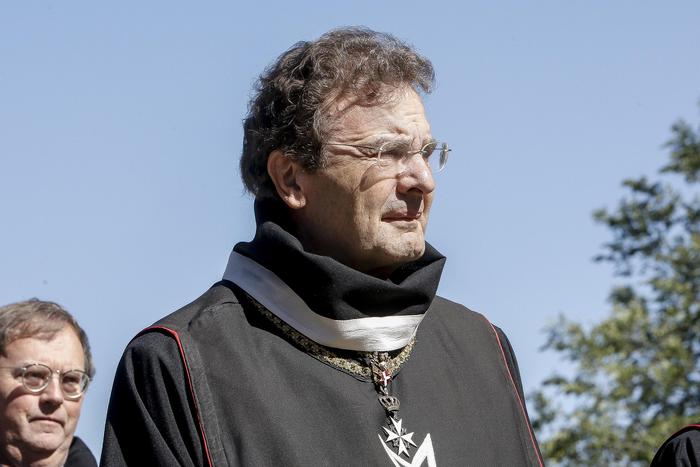In a world where crises are aggravating and multiplying, dialogue between religions and the contribution of religious leaders to resolving conflicts is crucial, while faiths can give new life to humanitarian principles, which are in decline in many international scenarios.
This was underlined by the Grand Chancellor of the Order of Malta Albrecht Boeselager, interviewed by ANSA on the sidelines of the G20 on interreligious dialogue in Bologna.
"In the world there are many challenges for humanitarian work, conflicts are increasing or worsening: think of the conflicts in the Middle East, in Sub-Saharan Africa and elsewhere. They pose a great challenge to us, as does Covid. In the West we may think of already in a post-Covid era, but in the Third World the pandemic is growing rapidly, and no one can predict what the long-term effects will be and when it will be brought back under control. African economy ".
In this international context of great uncertainty and difficulty, the humanitarian activities of the Order do not stop and aim at the involvement of other faiths and confessions. "One of the best examples of collaboration is Lebanon - explains Boeselager -. There we work with all religions and confessions: Shiites, Sunnis, Druze and many Christian confessions. We manage some clinics in cooperation. I think that in Lebanon, a country close to the complete collapse, where poverty increases greatly, cooperation with other religions proves that our willingness to work with others makes a difference ".
The Grand Chancellor also dwells on Afghanistan, one of the highest issues on the international agenda. "This crisis has two important effects that we need to keep an eye on: one is the decline in the reputation of Western values, including humanitarian values, often regarded as the West's own values. Which makes it all the more important to look for other sources that promote human values. For us one of the sources of these values are religions, which is why this event in Bologna is so important. Second effect: European countries are very worried about the possible flow of refugees. And so they encourage neighboring countries to welcome them: European countries are therefore ready to give them a lot of money. We are worried that migrations, or the threat of not stopping migrants, will become abusiness model ', or a blackmail: pay or we will send migrants to Europe. We can already observe it in different places ".
"In almost all religions - he concludes - there is the protection of life, the search for peace, hospitality for foreigners. They are a powerful source of ethical values, politics should draw on this source more than in the past. We are. glad that many governments have understood this, and the same happens at the UN level. This occasion in Bologna is an excellent opportunity to promote this policy. Foreign policy that does not consider religious culture, the potential of religious leaders, is not complete. The more we talk about it, the more relations there are between religions, the better. Humanitarian laws are in decline, religions are one of the few remaining sources to give life to these principles ".

